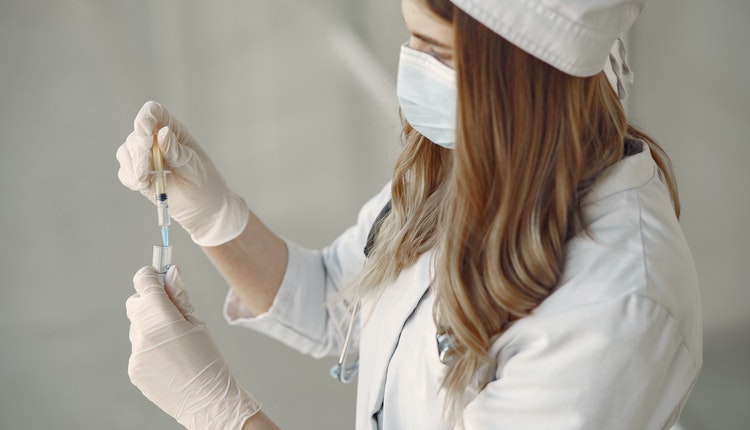Safe Clinical Research Guidelines During a Pandemic

The current coronavirus pandemic required a swift response from authorities in an effort to manage the spread of the virus. Lockdown in many countries was enforced quickly to try and slow the spread of the Coronavirus, including restrictions to healthcare facilities. Safety for everyone was the first priority, including the safety of clinical trial participants. Therefore, many clinical trial sites were closed, and the research put on hold.
Research Doors Start Opening
Having said that, the doors to research are slowly reopening around the world, but the medical research landscape has changed. COVID-19 is now a variable, directly or indirectly, and must be taken into account. New protocols will be part of our routines. The first change will be daily screening of research staff for symptoms of COVID-19 infection.
Update Your Clinical Trial Checklist
All participants in clinical trials must now be informed of the risks of COVID-19 and educated regarding transmission routes and symptoms of infection. Vulnerable populations, such as those who are pregnant or have comorbidities are particularly at risk. Face-to-face meetings with participants should be conducted only when absolutely necessary, and where possible, be changed to phone calls or online meetings.
The European Commission has issued guidelines on the management of trials during the pandemic. These guidelines relate to ongoing as well as new trials and the main suggestions state that:
- Suspending recruitment of trial participants.
- Closing and possible postponing of trial sites, especially in high risk zones.
- Transferring trial participants away from risk zones or closer to their homes.
- If necessary, making use of local laboratories outside the trial facility to complete diagnostic tests. This will assist participants who are unable to travel to trial sites.
The New Checkpoints
With the above in mind, six new considerations, in line with guidelines from the authorities, must be made for clinical trials:
- Staff and participant safety: The European Medicines Agency (EMA) has stated that “safety of the participant is of primary importance, and risks of involvement in the trial, in particular with added challenges due to COVID-19, should be weighed against anticipated benefit for the participant and society.”
- Protocol amendments: Any COVID-19 hazards should be minimized or eliminated to protect research staff and participants. These protocol amendments must be made together with the trial sponsors, taking their standard operating procedures into account. Any protocol amendments must be recorded and considered in the study.
- Study management: As mentioned above, alternative methods for communicating with trial participants should be considered in cases where physical visits are not essential. Where possible, study treatments should be delivered to participants’ homes to minimize travel between high and low risk zones.
- Communication: Any trial conduct changes, and the implications thereof, must be communicated to research sites.
- Expenses: If patients or trial sites incur extra expenses due to trial protocol changes, they must be reimbursed by the sponsor.
- Documentation: Any trial changes must be recorded. This includes new monitoring methods, travel policies, adverse reaction documentation and any other changes.
Clinical Protocol Changes
In addition to the above, the FDA has stated that COVID-19 screening procedures need not be reported as a change of clinical protocol. Furthermore, protocol changes need not be reviewed and approved by the relevant approval board if they minimize or eliminate immediate hazards to participants. However, they must be reported after the study.
Unproven Experimental Therapies
In urgent situations, such as the Ebola outbreak, untested experimental therapies may be used as an exceptional emergency measure. For example, two American aid workers who contracted the Ebola virus in 2014, were cured after being treated with an untested agent known as ZMapp. The danger with untested therapies is that it is not known whether the therapy cured them, or their own immune system managed to fight off the virus. Furthermore, any safety and efficacy have not been fully determined. However, the World Health Organization made an allowance for untested therapies during the 2014 Ebola outbreak under the following strict conditions:
- Research should not divert attention or resources from public health measures.
- Research must be guided by ethical criteria.
- An intervention must be assessed in respect of its risks and benefits.
- Only interventions that have undergone preclinical trials, in particular non-human primate studies, and demonstrated safety and efficacy should be used.
- Such an intervention may not delay high-quality clinical investigations.
- All stakeholders must be educated about the uncertainties of the intervention.
- Any side effects must be managed, and supportive treatment be supplied.
- Data collected form these studies must be collected and shared.
- The available standard of care and feasibility of investigational therapies must be taken into consideration.
Rules Exclusive for Research Participants
Trial participants will be affected by the pandemic in many ways. They may not have access to the investigational product during lockdown and alternative arrangements may need to be made to assist them. Researchers and participants may feel stressed and need counselling. So far, several negative psychological effects of quarantine have been reported including posttraumatic stress, confusion and anger. Other factors include loneliness and isolation, especially for people living on their own. People are also worried that their family members will contract the virus. Therefore, the possibility of mental stress should be monitored and addressed. Often practical tips help people deal with their stress as they feel some form of control.
Continuing Clinical Research
The decision to continue clinical trials during the COVID-19 pandemic has been a tough choice for principle investigators (PIs). Ultimately it is their responsibility to weigh up the risks and benefits in the context of the pandemic. PIs must provide a safe environment and address the psychological needs of participants. Community engagement is essential. A community, involved in the planning process of a trial and informed of the risks and benefits, is more likely to trust the research process.
How would you change your trial protocol during a pandemic? Let us know your thoughts in the comments section below.








